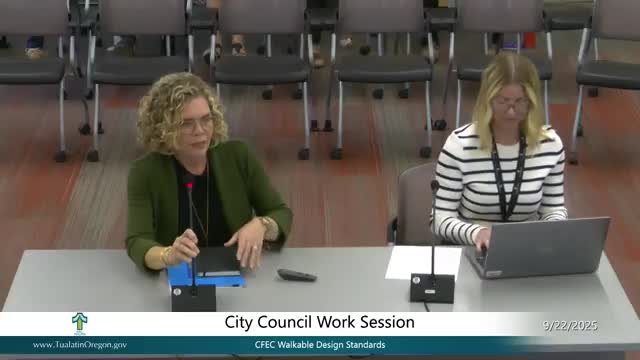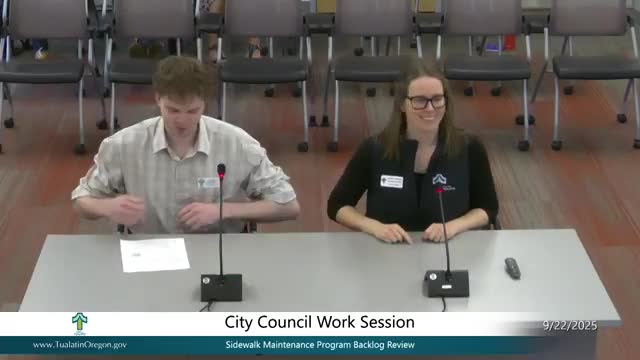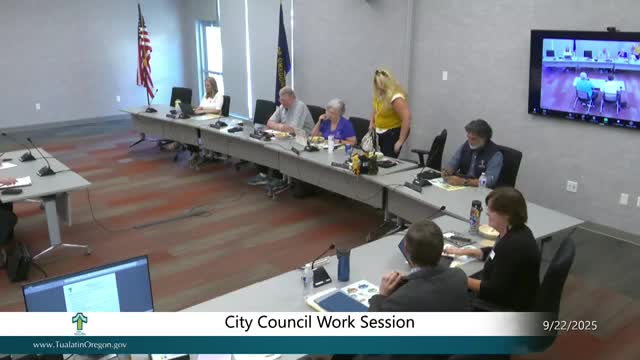Article not found
This article is no longer available. But don't worry—we've gathered other articles that discuss the same topic.

Tualatin council directs staff to prohibit new drive‑throughs in mixed‑use commercial zone under walkable‑design rules

Tualatin public works proposes $1.2 million, two‑year plan to repair sidewalk backlog and replace trees

